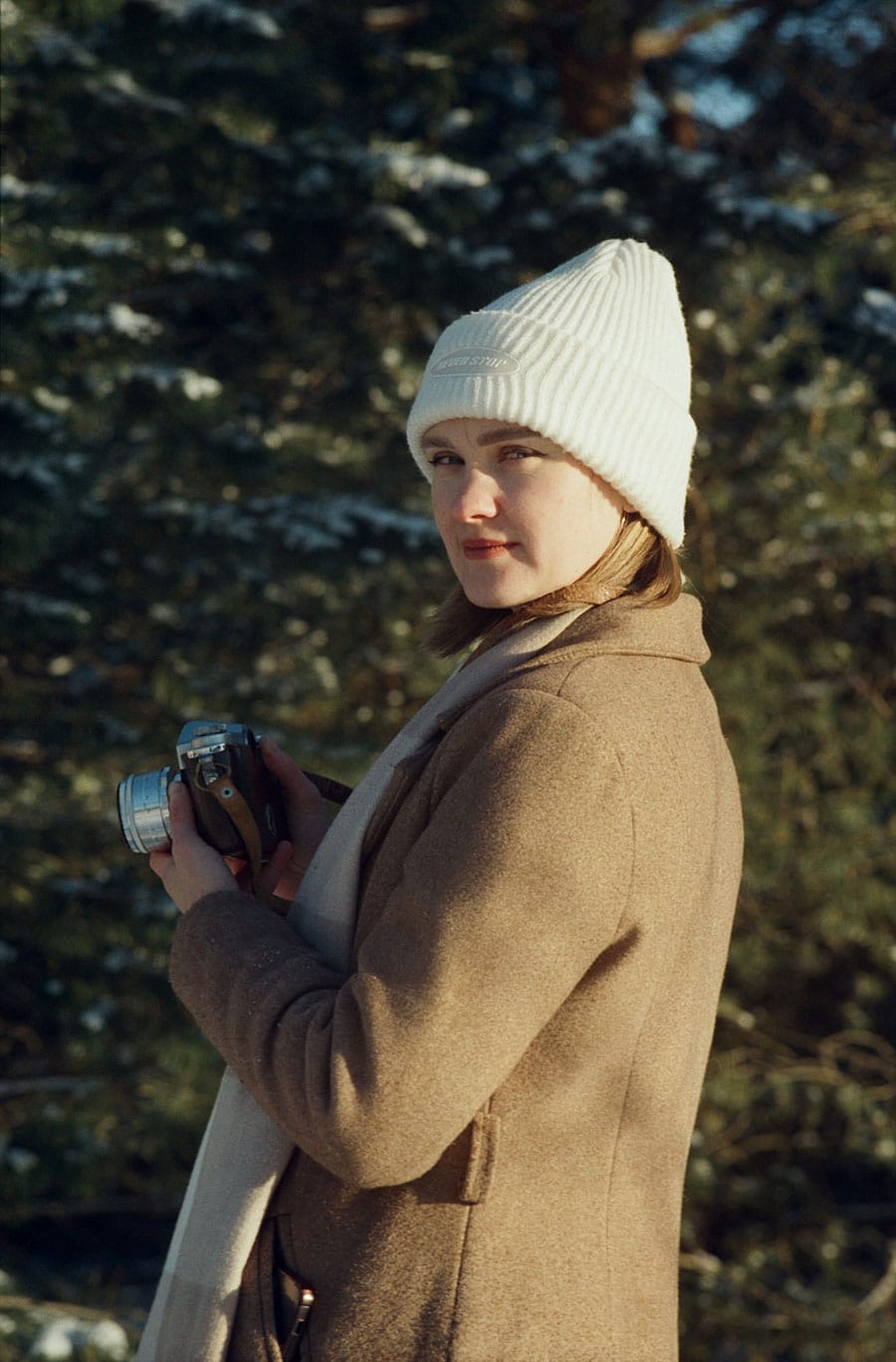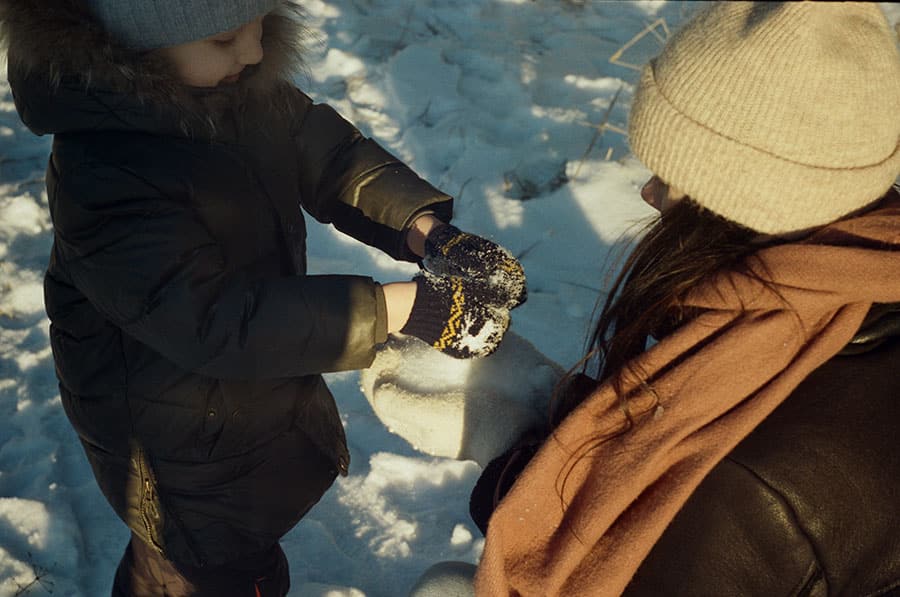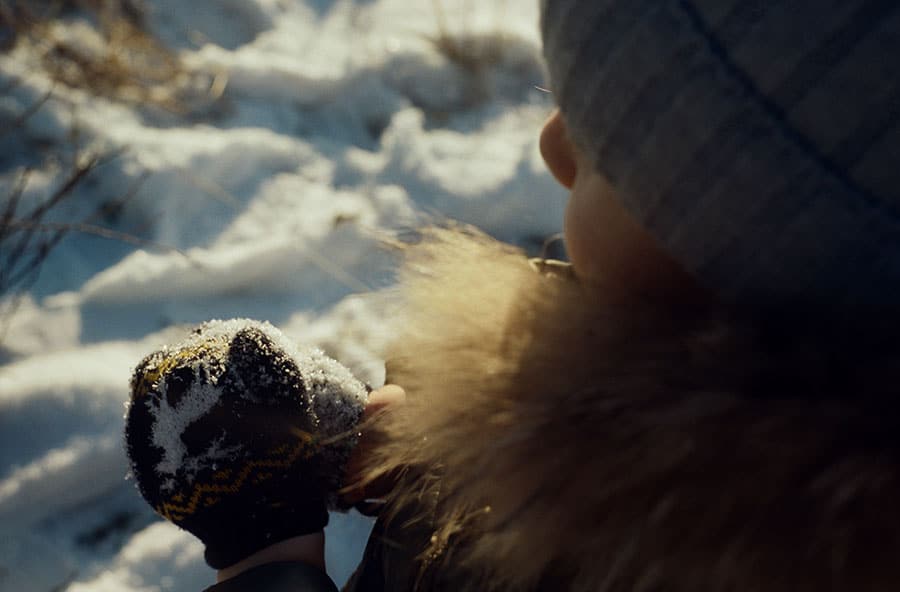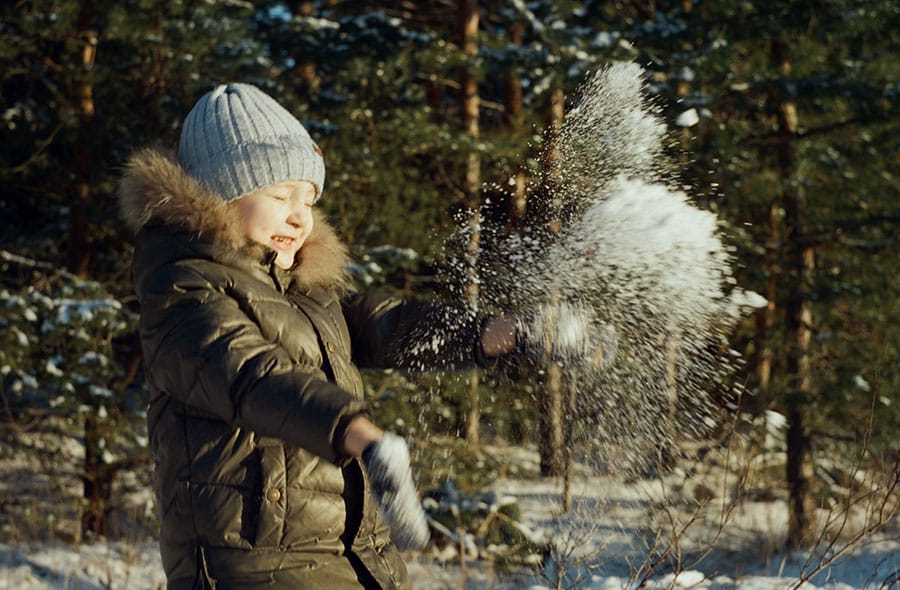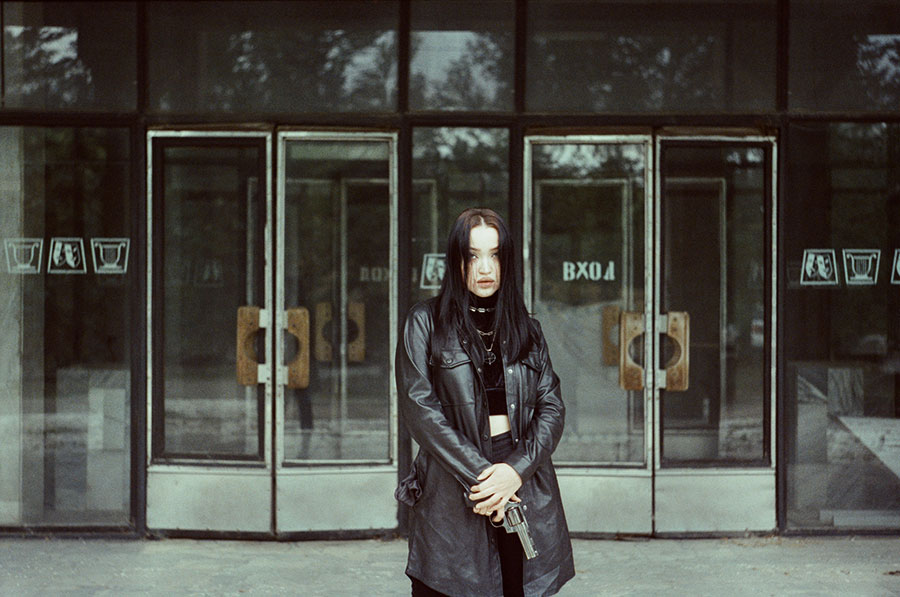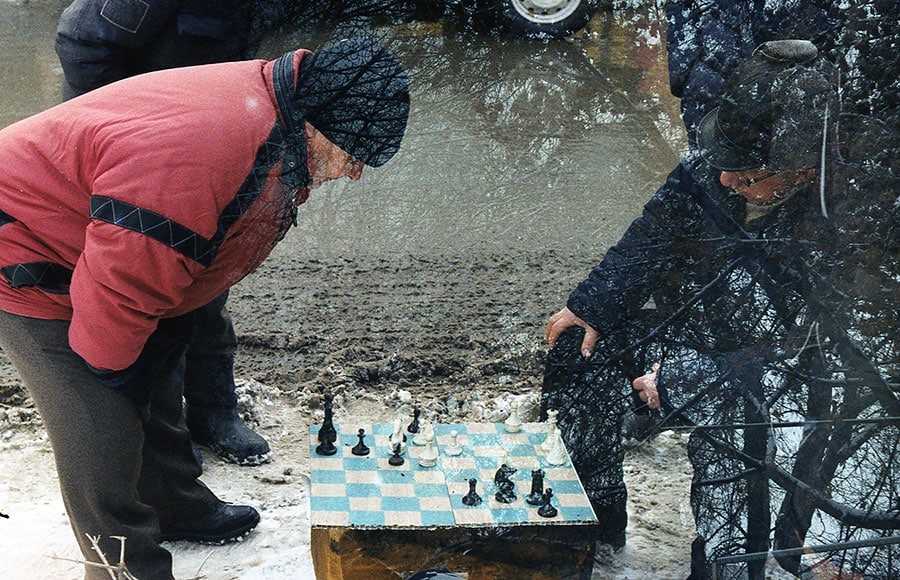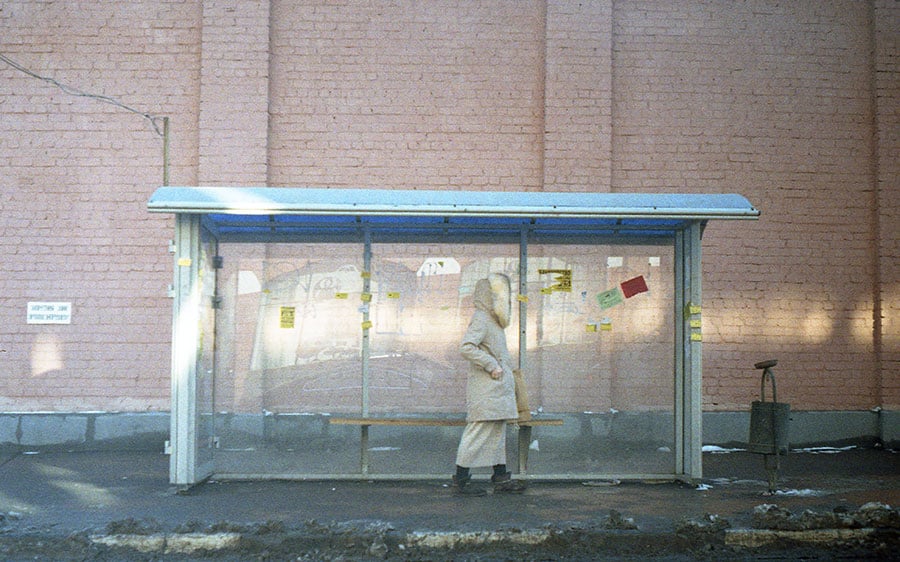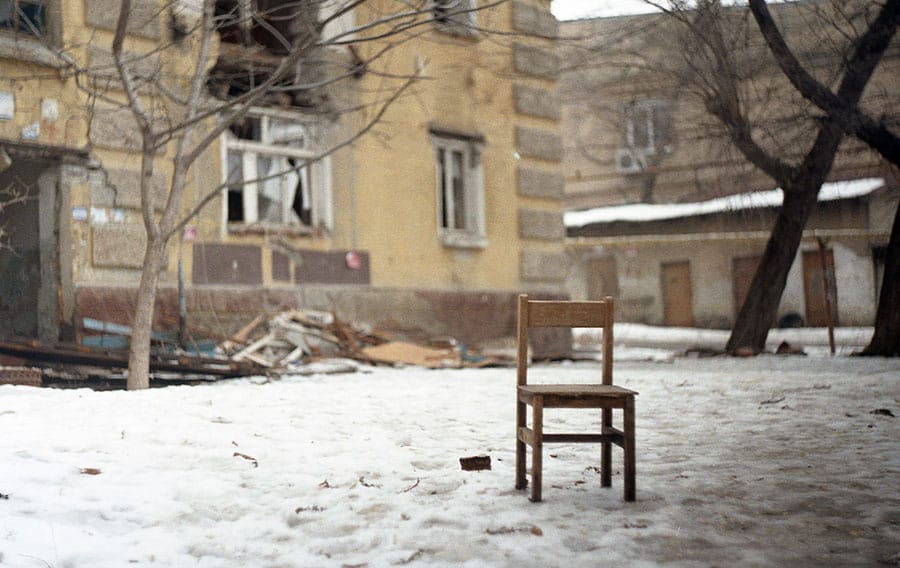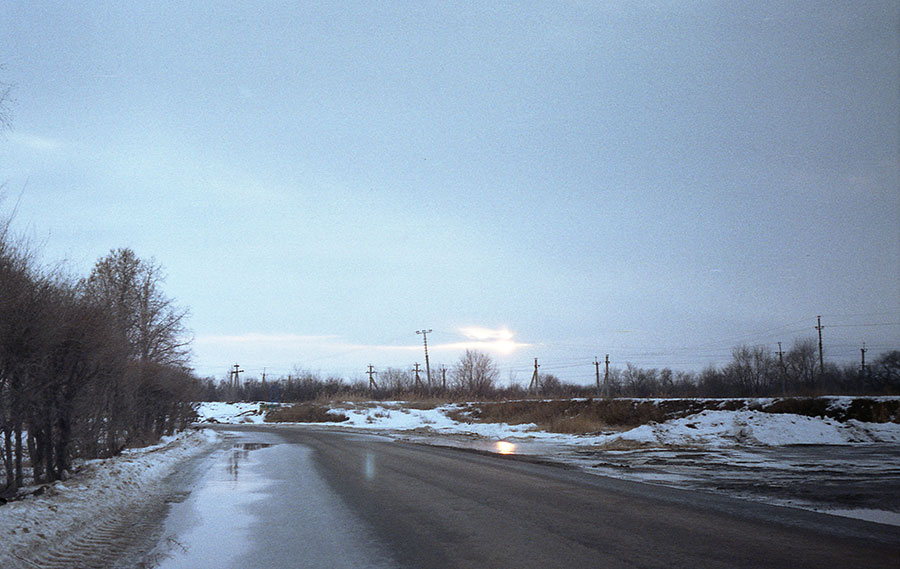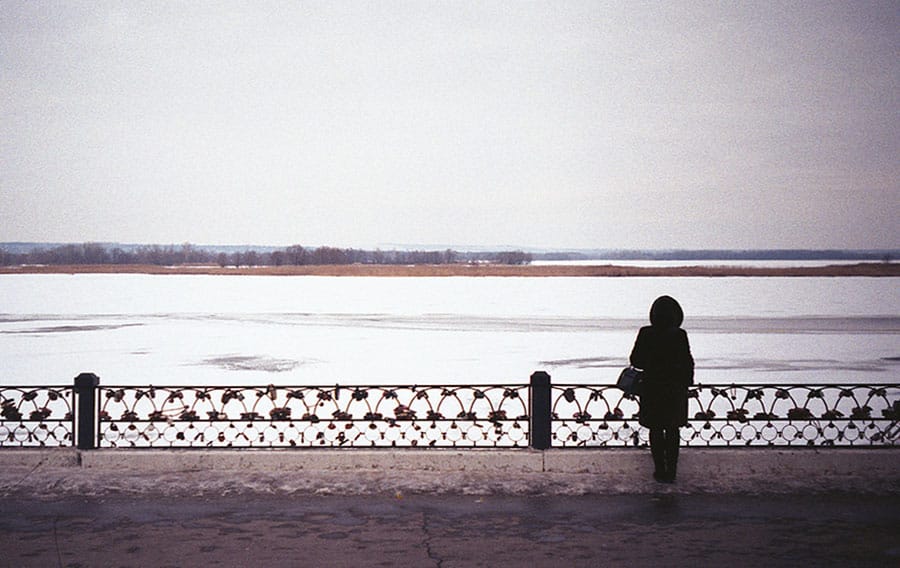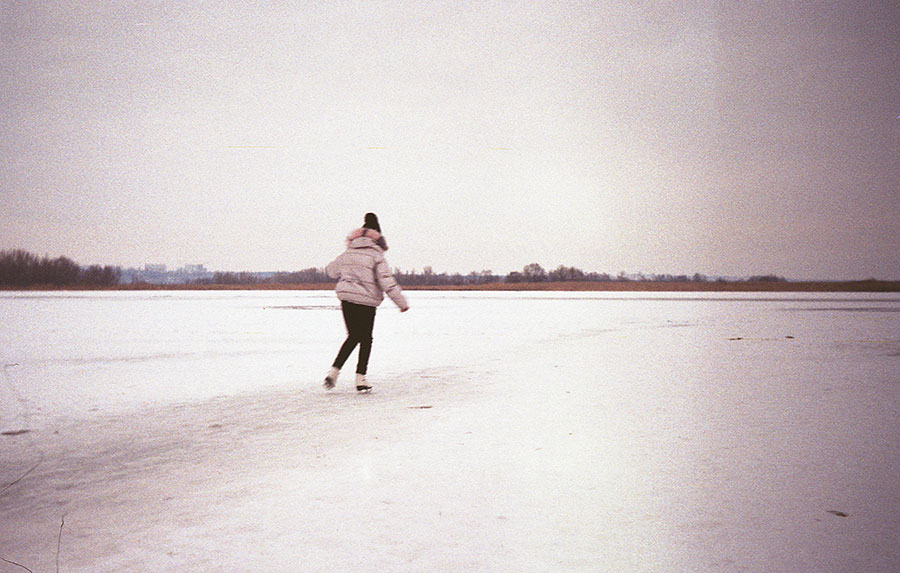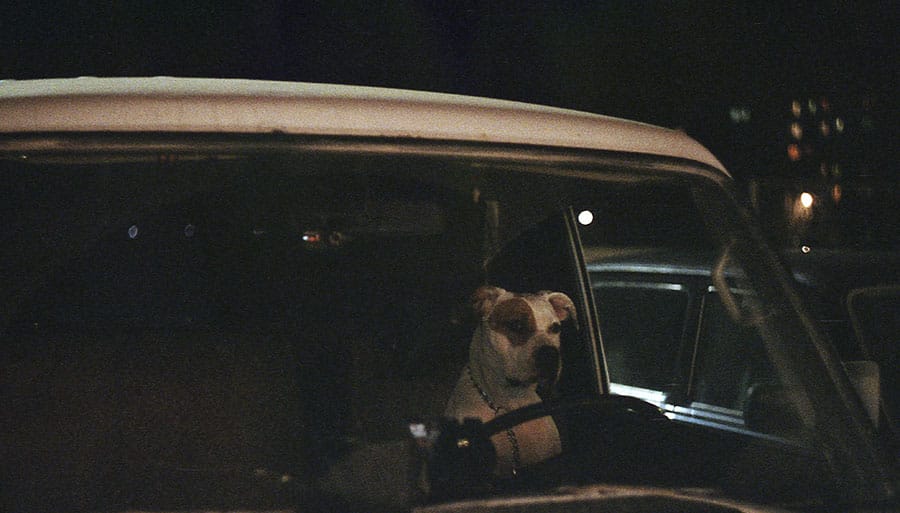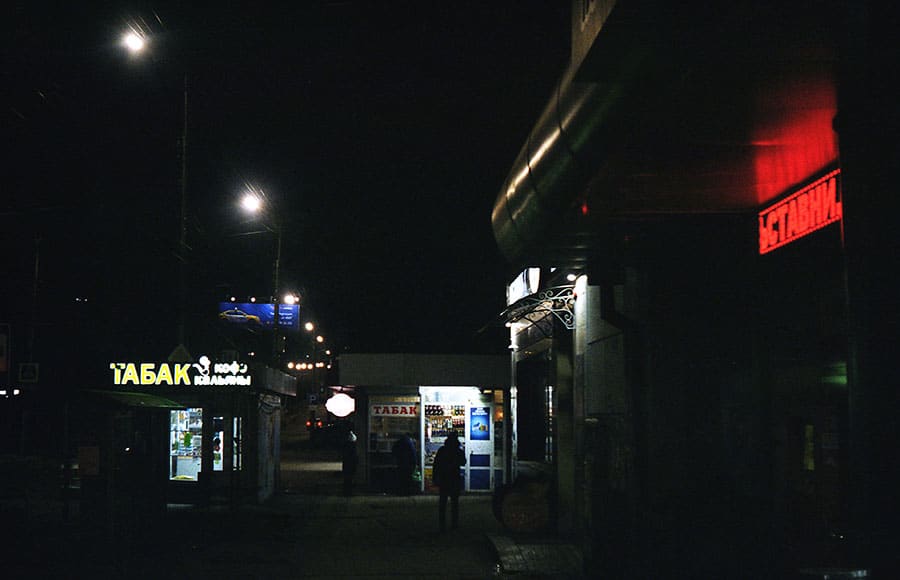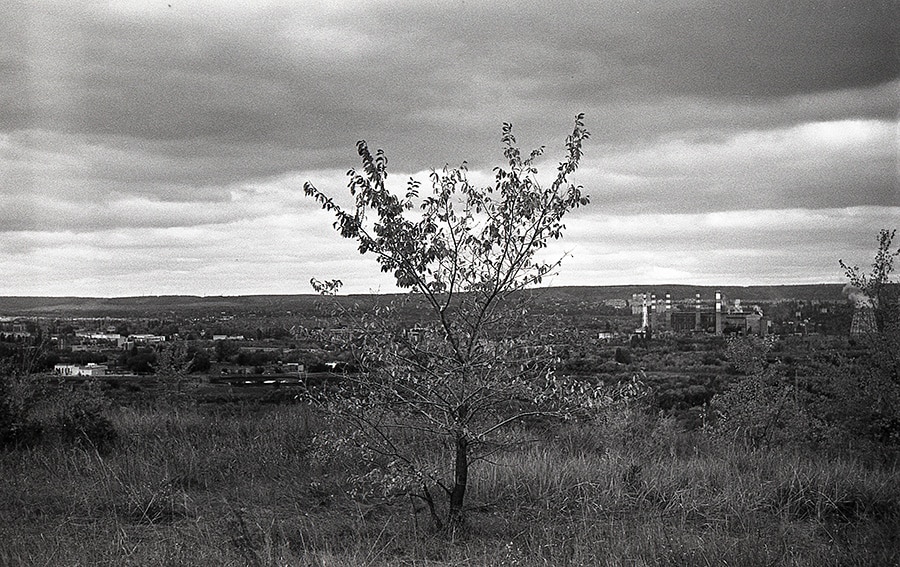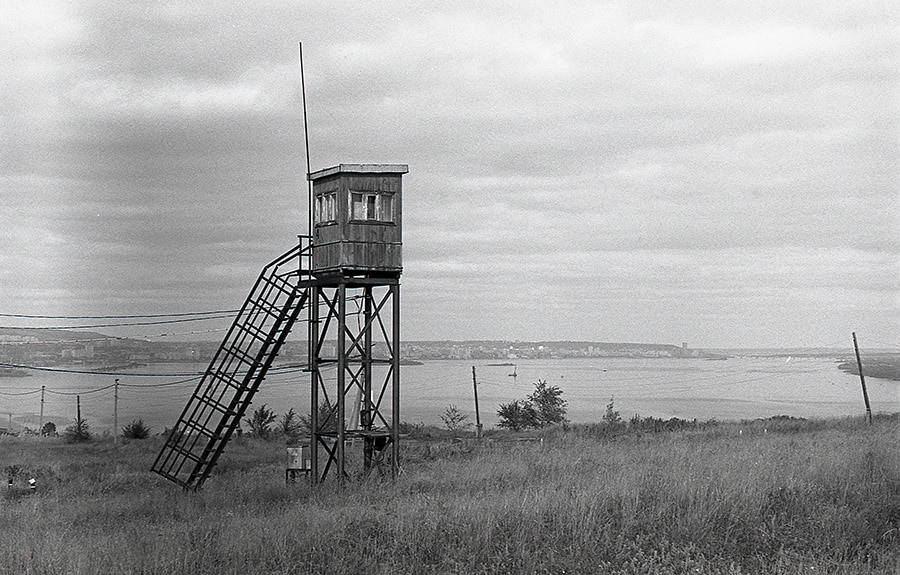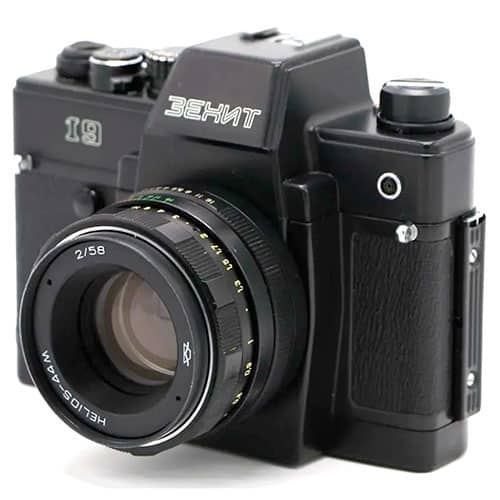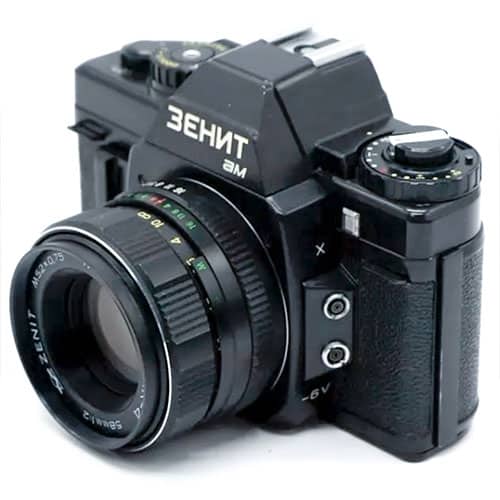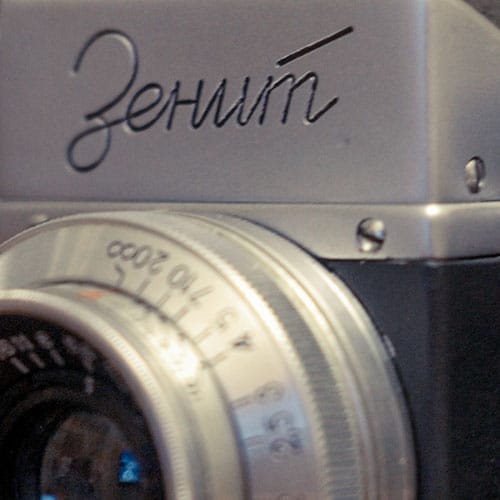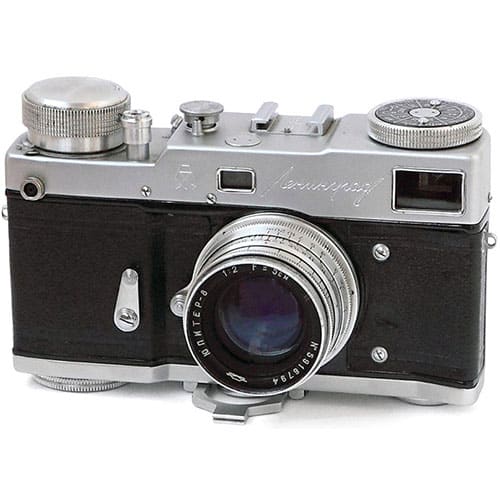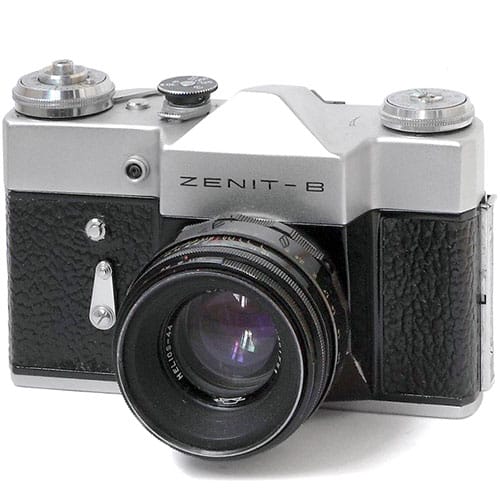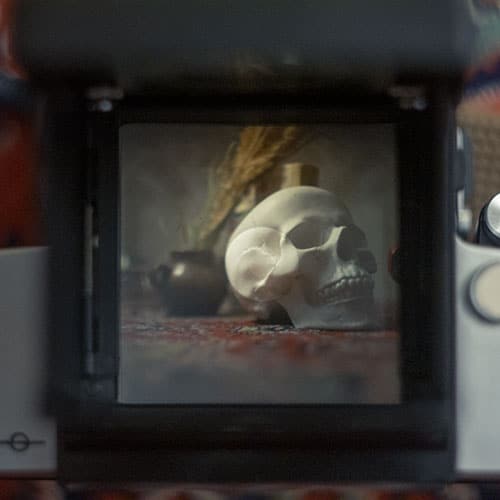Zenit
The Zenit camera, which will be discussed in this article, is the first single-lens reflex camera produced by the Krasnogorsk Mechanical Plant that gave rise to the legendary series of Soviet Zenit cameras.
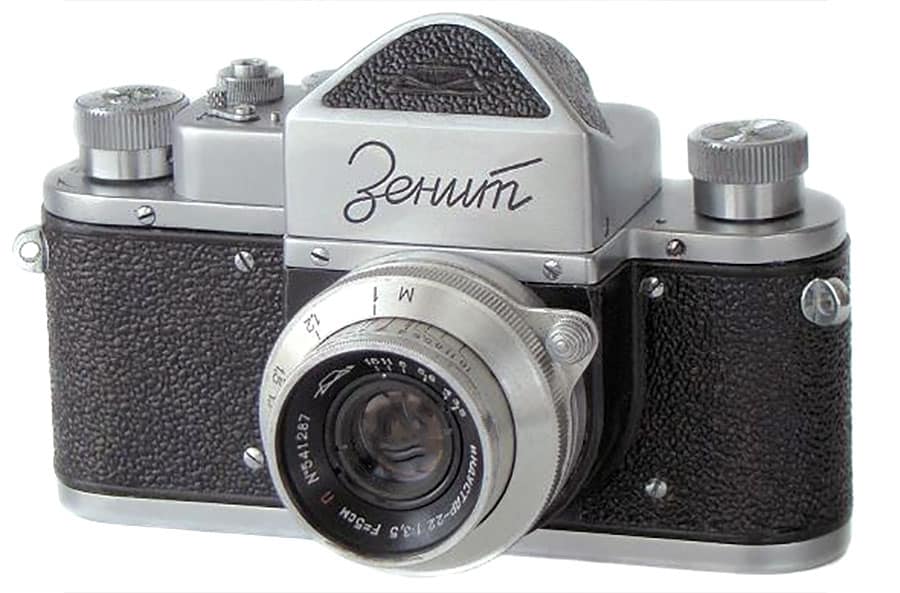
In 1952, the KMZ plant began to produce Zenit cameras, which later became the most popular SLR cameras in the world.
Zenit Specifications
- Type: 35mm SLR camera
- Manufacturer: KMZ plant
- Production period: 1952-1956
- Format: 24x36cm on 135 film
- Lens mount: m39 thread mount
- Lens: Industar-22 f3.5/50
- Viewfinder image field size: 20×28mm
- Shutter: focal-plane shutter with speeds from 1/25 to 1/500 sec.
- Viewfinder: SLR with non-removable pentaprism
- Lighmeter: none
- Flash synchronisation: none
- Selftimer: none
- Weight: 630 grams
The first SLR camera appeared in the USSR in the early 30s and became one of the very first 35mm film SLR cameras in the world. But by coincidence, the production of these cameras, called Sport ceased.
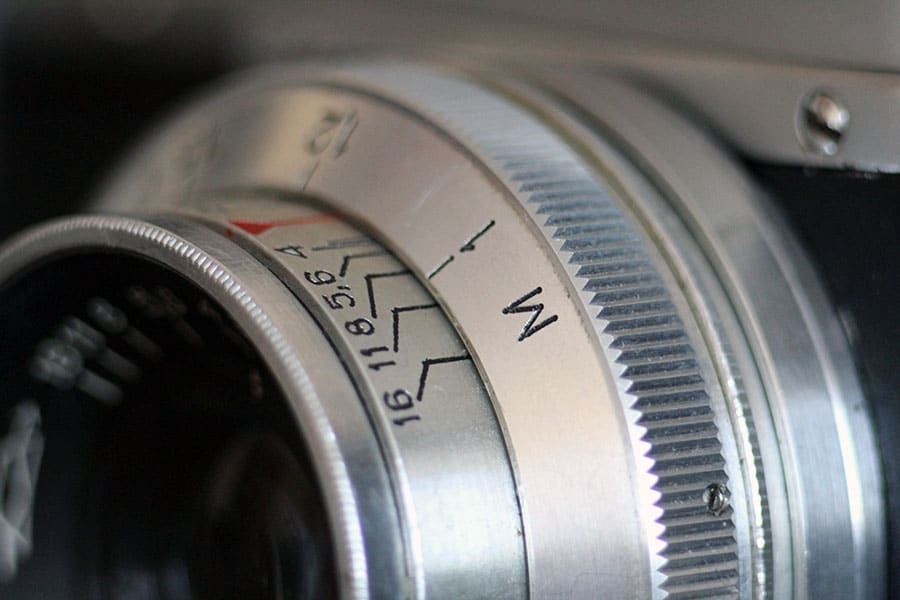
In the early 50s, the Soviet Union faced the task of resuming the production of SLR cameras, and the engineers decided to remake Zorki (a copy of Leica II) by simply adding a mirror mechanism.
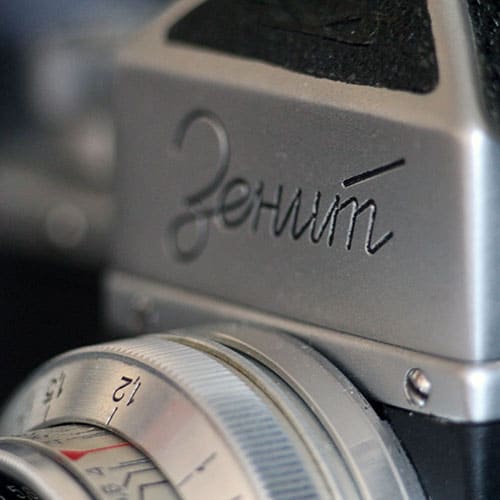
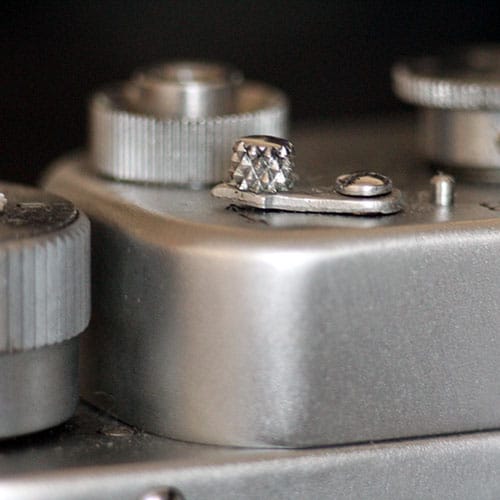
The engineer’s decision was very correct, and the Zenit camera (without any additional inscriptions) turned out to be truly successful. The camera had a stylish appearance and good functionality, especially for the Soviet Union in the early 50s.
Leica’s legacy is felt in this cell. The controls are in the right places, and the camera is assembled very soundly and qualitatively (again, especially by Soviet standards).
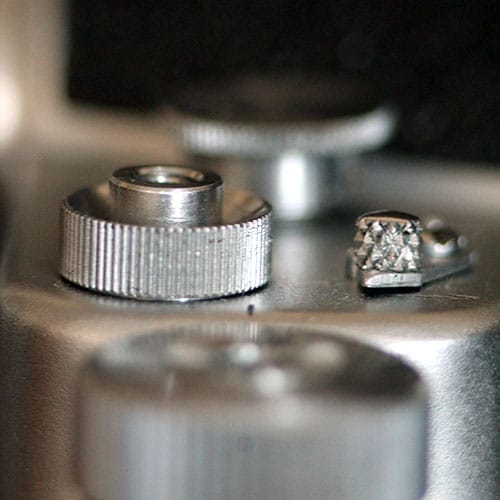
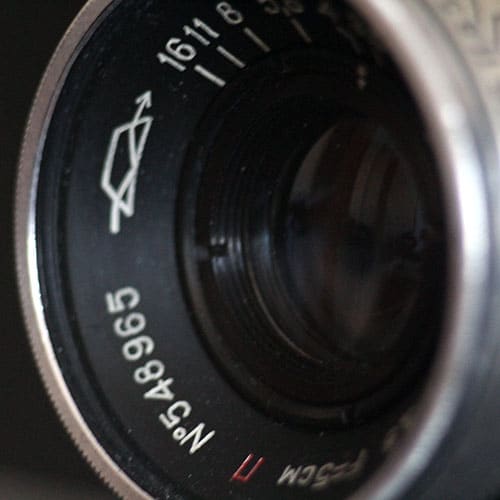
The viewfinder is very large, bright, and clean, especially compared to the later Zenits.
This legendary device was equipped with an Industar 22 3,5/50 lens made according to the Tessar scheme. Hence the fairly good sharpness and contrast of the photos made with this lens.
The shutter is the same as on the first Zorki and FED and has the same speeds of 1/25, 1/50, 1/100, 1/250, 1/500, and B. For the early 50s this was a fairly decent list of shutter speeds, but the fact that the same speeds were used in Zenits until the 2000s is rather strange.
But the camera also has several minor flaws, which in our opinion do not make the camera worse. Like the first FED and Zorki cameras, the first Zenit has a bottom film loading. Only 67% of the image is visible in the viewfinder. In addition, the camera has no film advance lever.
The great advantage of the original Zenit is that you can equip it with a large number of different cool Soviet lenses. For example, you can use the stunning Helios 44 2/58 or Jupiter 9 2/85, which are great portrait lenses.
As we have said more than once, the quality of Soviet equipment has fallen every year, and this was due to a variety of reasons.
The influence of the pre-revolutionary heritage in science and technology became less and less every year, quality control standards fell, and the conservative directors of all plants and factories did not want to make any innovations.
But all this does not make the Zenit camera bad at all. In our opinion, the original Zenit is one of the best Soviet film SLR cameras.
ZENIT PHOTOS
